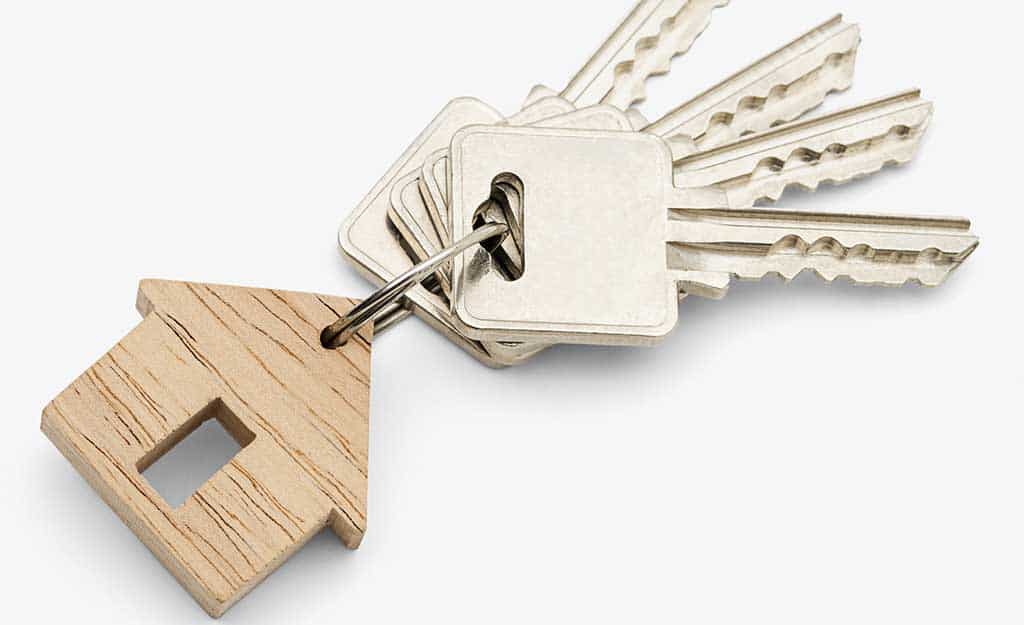Introduction
Purchasing real estate in the Dominican Republic is a rather straightforward process which involves several legal steps similar to the process in the United States, with some exceptions. As a real estate broker, it is our responsibility that buyers be efficiently guided over the course of their property purchase, contracting the right Notary Public and making sure all the legal protections and guarantees are respected accordingly.
“Buy Property Guide” provides a detailed description of the buying process to properly inform buyers before entering in a real estate transaction in the Dominican Republic.

The Real Estate Transaction in 5 steps
1. The Preliminary Steps
Purchasing real estate in the Dominican Republic does not always follow the North American pattern of a written offer tendered by the buyer to the seller, followed by the seller’s written acceptance. Instead, after verbal agreement is reached between buyer and seller on the purchasing conditions, a binding Promise of Sale is drafted by an attorney or Notary Public. The contract is signed by both parties. Notaries in the Dominican Republic are required to have a law degree.
It is highly recommended that the prospective buyer retain a trusted real estate attorney before signing any document or making a deposit. Ocean Edge works only with trusted attorneys to guarantee a faultless legal process.
2. The Promise of Sale
The Promise of sale is a legal document, binding on both parties at signature, in the presence of a Notary Public. From a practical point of view, it is more significant than the Deed of Sale because it contains a detailed description of the transaction up to the full payment of the property and the transfer of the property title to the buyer.
A well-drafted Promise of sale must contain the following articles:
* (a) Full name and identities of both parties. If the seller is married, the spouse is required to sign.
* (b) Legal description of the property to be purchased
* (c) Purchase price and payment terms
* (d) Default clause and penalty
* (e) Delivery date of the property
* (f) Due diligence required or completed
* (g) Representations by the seller and remedies in case of misrepresentation
* (h) Obligation by seller of signing the Deed of Sale upon receipt of final payment
In order for buyers to be protected adequately it is highly recommended to follow these 3 advices:
(a) The downpayment made by the buyer at signature of the Promise of Sale should be high enough to guarantee good execution of the transaction (equivalent penalty for breaking the agreement). It is common practice to make a downpayment of 10% to 20% of the purchasing price.
(b) Payments must be conditioned on the availability of clear title of property or the adequate progress of construction
(c) Use Escrow agents so that the seller does not have access to the funds until completion of its obligations
3. The Deed of Sale
The Deed of sale, like the Promise of Sale, is a contract binding on both parties at signature and in the presence of a Notary Public. Its purpose is to attest that the property has been paid in full and the original Property Title has been transferred from the seller to the buyer.
The Deed of Sale is taken to the nearest Internal Revenue Office where a request is made for the appraisal of the property. The Internal Revenue Office verifies that the seller is in compliance with his tax obligations and sends an inspector to do the appraisal. The determination of the amount of taxes to be paid may take a few days or weeks, depending on the availability of the property inspector.
4. Filing at the Registry of Title
Once the property has been appraised and the taxes paid, the Deed of Sale and the Certificate of Title of the seller are deposited, along with the documentation provided by Internal Revenue, at the Title Registry Office in the jurisdiction where the property is located.
5. Certificate of Title
The sale is registered at the Title Registry Office and a new Certificate of Title is issued in the name of the buyer. Once the sale is recorded at the Title Registry, the property legally belongs to the buyer. The issuance of the new Certificate of Title can vary from several days to a few weeks depending on the Title Registry Office where the sale was registered.

Due Diligence
Many attorneys in the Dominican Republic do not perform the required due diligence on real estate transactions, limiting themselves to obtaining a certification on the status of the property from the Title Registry Office. Hence the importance to contract a trusted and certified Notary Public.
To start the Due Diligence, the seller/broker needs to provide the Notary with the following documents:
- Copy of the Certificate of Title of the property
- Copy of the official survey to the property land or “Deslinde”. The Deslinde is an official document demarcating the property with GPS points and approved by the government. Under the Property Registry Law, the sale of properties without a government-approved plot (Deslinde) cannot be recorded at the Registry
- Copy of Identification card (Cédula) or Passport and ID of the spouse, if married
- Copy of the receipt for the last property tax payment (IPI) or copy of the certificate stating that the property is exempt from property tax, and certification from the Internal Revenue Office showing confirming that the seller is in order with the tax obligations
If the property is owned by a company:
- Copy of the corporate documentation (latest general meeting of the board), including bylaws, up-to-date registration at the Mercantile Registry and resolution authorizing the sale
- Certification from the Internal Revenue Office showing the corporation is current with its tax obligations, especially with Income Tax and Tax on Assets
If the property is part of a condominium:
- Copy of the condominium declaration
- Copy of the condominium rules
- Copy of the approved construction plans
- Certification from the condominium administration showing the seller is in order with the condominium fees (HOA’s)
- Copies of the minutes of the last three condominium meetings
If the property is an individual house:
- Copy of the approved construction plans
- Inventory of furniture included
- Copies of the utilities contracts and receipts showing that the seller is current with it.
After obtaining the documentation listed above, the attorney must address the following items:
- Title Search: Obtain a certification from the corresponding Title Registry Office regarding the property status, identifying the owner, eventual mortgages and liens affecting the property
- Survey: Verification by an independent surveyor that the property coincides with the survey/Deslinde. Not necessary when the property is located in a previously inspected subdivision. The survey/Deslinde should be double-checked even when the seller provides a government-approved plot/Deslinde
- Inspection of Improvements: Examine the improvements on the property land to be sold (house, condo) by a qualified constructor or architect to confirm that the plans presented are correct and that the improvements are in good condition
- Permits: The attorney should confirm that the property to be purchased may be used for the purposes sought by the buyer.
There are some legal restrictions which should be taken into account before purchasing:
For example, Law 305 of 1968 establishes a 60-meter maritime zone along the entire Dominican coastline which in effect protects all beaches into public property. No building is allowed within the maritime zone without a special permit from the Executive Branch. Also, in tourist areas, there are a few building restrictions administered by the Ministry of Tourism.
- Possession: The attorney must check that the seller is in possession of the property. It should be ensured that no other rights of any kind exist on the property. Special precautions should be taken with unfenced properties outside known subdivisions. Fencing them before closing is advisable.
If there are tenants on the property, the buyer should be informed that Dominican law is protective of a tenant’s rights and evicting a recalcitrant tenant can prove time consuming and expensive. - Employees: The seller should pay any employees working on the property their legal severance, otherwise the buyer may find himself liable for the payment later.
- Utilities: The attorney must check that the seller does not have any utility bills pending by enquiring at the appropriate power distributor, water, cable and telephone companies.

Property Transfer Tax
Taxes must be paid before filing the purchase at the Title Registry Office. Taxes and expenses on the transfer of real estate property are approximately 3.5% of the government appraised value of the property, as follows:
- 3% Transfer Tax (Law # 288-04)
- Minor expenses such as cost of certified check required to pay taxes to Internal Revenue, and sundry stamps.
Taxes are paid based on the market value of the property as determined by the tax authorities, not on the price of purchase stated in the deed of sale.
It is possible to lessen the impact of transfer taxes using a loophole in the law which allows the contribution in kind of property into corporations without paying transfer taxes. For this, cooperation from the seller is essential.
Taxes and Expenses on Property
Properties held in the name of an individual are subject to an annual property tax (“IPI”) of 1% of government-appraised value in excess of RD$7,710,158 pesos (US$150,000) except for unbuilt lots or farms outside city limits and properties whose owner is 65 years old or older, who has registered it in his or her name for more than 15 years and has no other property.
If the property is held by a corporation, no property tax is due. Instead, the corporation must pay a 1% tax on corporate assets. However, any income tax paid by the corporation will constitute a credit toward the tax on assets, so that if corporate income taxes paid are equal to or higher than the taxes on assets due, the corporation will have no obligation to pay taxes on its assets.

Purchase of Real Estate by Foreigners
There are no restrictions on foreigners purchasing real property in the Dominican Republic.
Formerly, Decree 2543 of March 22, 1945 and its amendments required that foreigners obtain prior Presidential approval except in certain cases. Decree 21-98 of January 8, 1998 abolished this regulation and established as the only requirement that the Title Registry Offices keep a record, for statistical purposes, of all purchases made by foreigners.
Inheritance of Real Estate by Foreigners
There are no restrictions on foreigners inheriting title to real property in the Dominican Republic.
Inheritance taxes have recently been lowered to 3% of the appraised value of the estate. For beneficiaries residing outside the Dominican Republic, inheritance taxes are subject to a 50% surcharge, raising the tax rate to 4.5%.
Inheritance of real estate is governed by Dominican law which provides for forced heirship:
part of the inheritance must go to certain heirs by law. For example, a foreigner with a child must reserve 50% of the estate to that child despite the existence of a will or of the law of his country of residence. To avoid the application of Dominican rules of inheritance to the estate, it is advisable for foreigners to hold real estate indirectly through a holding company.
Note: While we investigated thoroughly to guarantee the accuracy of this publication, it is not intended to provide legal advice. Individual situations may differ and should therefore be discussed with an legal expert. For specific technical or legal advice on the information provided and related topics, please contact us via email and we will be happy to put you in touch with our Notary and Lawyer.
We hope that this buying guide was useful to you. For any questions please reach out to us via email at [email protected] and we will answer in the shortest delays.
We remain fully available to guide you in your property search in Las Terrenas, Dominican Republic.
The Ocean Edge Team










